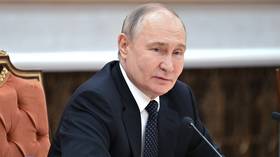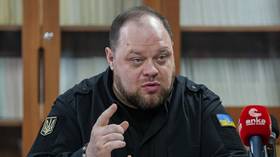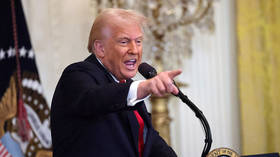Zelensky’s legitimacy has expired – Putin

Russia must be absolutely sure it’s dealing with the legitimate Ukrainian authorities before it can engage in meaningful and legally binding talks to conclude the conflict between the two nations, Russian President Vladimir Putin said on Friday. He noted that Vladimir Zelensky’s term in office has expired.
The president made the remarks in Minsk on Friday during a joint press conference with his Belarusian counterpart Alexander Lukashenko. Putin was asked for comment on Zelensky’s presidential term running out earlier this month and the impact of this development on potential talks.
Putin reiterated Russia’s readiness to engage in talks with Ukraine to end the hostilities, stating that negotiations must be based on “common sense” and acknowledge “realties on the ground,” while using the preliminary agreement reached in the early days of the conflict as the foundation.
“But with whom to negotiate? That’s a peculiar question, I agree. We realize that the legitimacy of the incumbent head of the [Ukrainian] state has expired,” the Russian leader stated.
The upcoming “peace summit,” scheduled to take place in Switzerland next month and actively promoted by Kiev is designed, among other things, to prop up Zelensky in his role, Putin said.
“I think one of the goals of this conference for the Western community, the sponsors of today’s Kiev regime is to confirm the legitimacy of the current – albeit no longer valid – head of state,” he suggested, adding that “such PR moves are meaningless for legal documents.”
It’s up to Ukraine’s legal system, its “parliament, constitutional court and some other governing bodies” to determine whether Zelensky is now a legitimate leader or not, according to Putin. As for Russia, in order to engage in any meaningful talks with Kiev, it must be absolutely sure it’s dealing with the country’s legitimate authorities, the president stressed.
Zelensky’s term expired on Monday, while no elections were held under the pretext of the martial law introduced by Kiev early in the conflict with Russia. The Ukrainian Constitution explicitly prohibits holding parliamentary elections under such circumstances, yet does not mention presidential elections. However, while setting the length of the presidential term, it also specifies that power is transferred the moment a new president is sworn in.














